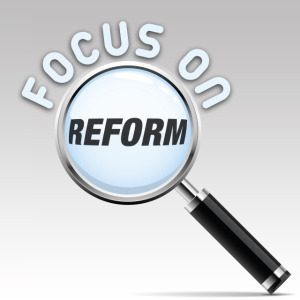by
Astrid Fiano, DOTmed News Writer | July 22, 2010
Will health reform changes in Medicare and revenue provisions continue? Definitely so, and on through the next several years. The complicated changes in the nation's "safety-net" of medical care for seniors and disabled persons has many more targeted activities for improvements. More changes will be made to tax laws to help pay for reform. Here's a look at some of the provisions that will be in effect in 2011.
Medicare
Pharmaceuticals--in 2011, pharmaceutical manufacturers will be required to provide a 50 percent discount on brand-name prescriptions filled in the Medicare Part D coverage gap. Additional discounts on generic drugs will also begin phasing in. Medicare Part D premium subsidies will be reduced for high-income beneficiaries to help defray costs.
Physicians--effective in 2011, primary care physicians and general surgeons will receive a 10 percent Medicare bonus payment for primary care physicians and general surgeons.
Supplemental plans--Medicare Advantage plans will be reformed with payment benchmarks for 2011, and will be frozen at 2010 levels. The payment benchmarks will then be reduced in subsequent years for high-cost areas, from 5 to 95 percent of Medicare spending. Low-cost areas might have a raise of 115 percent of Medicare spending.
Hospitals--a temporary applicable percentage increase will be given to qualifying low-volume hospitals, for discharges in fiscal years 2011 and 2012. The percentage will be on a linear sliding scale ranging from 25 percent for those hospitals with 200 or fewer discharged Medicare patients, to 0 percent for those hospitals with greater than 1500 discharges.
Community care--the Department of Health and Human Services (HHS) will establish a Community-Based Care Transitions Program. The program will run for a 5-year period, beginning January 1, 2011. HHS will provide funding for eligible entities that provide care transition services to high-risk Medicare beneficiaries. A high-risk beneficiary is one who has cognitive impairment; depression; a history of multiple readmissions; or other chronic disease or risk factor as determined by HHS. An eligible entity can be a hospital with a high readmission rate or an appropriate community-based organization providing care transition services through arrangements with high readmission-rate hospitals.
Tax Changes
--Increasing the Additional Tax on Distributions from a Health Savings Account
This increase is on withdrawals from health savings accounts and Archer medical savings accounts prior to age 65, which are not used for qualified medical expenses. The increase is from 10 to 20 percent of the withdrawal amount for HSAs and 15 to 20 percent for Archer MSAs. This provision takes effect upon distributions made after December 31, 2010.
